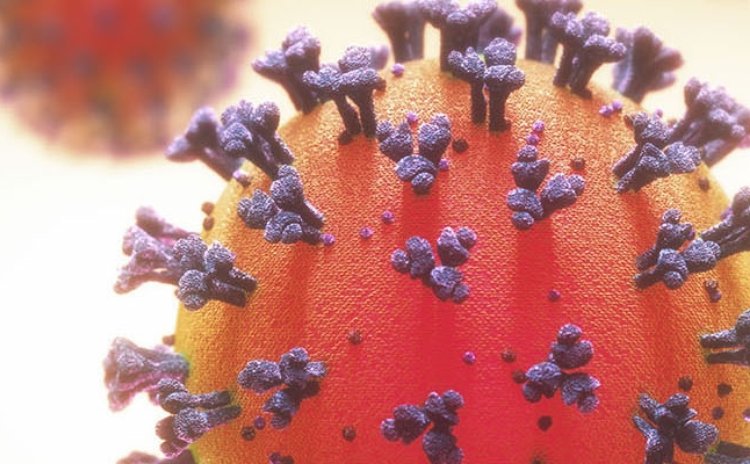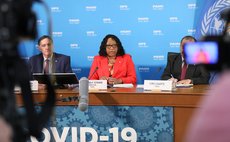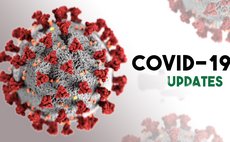The Global Coronavirus Pandemic: Why are confinement measures so vital?
By: Dr. Patrick Cloos

On January 30, 2020, the World Health Organization (WHO) declared an outbreak of a novel coronavirus (COVID-19) as a public health emergency of international concern. The first case of COVID-19 was detected in China on December 31, 2019. On March 11, less than 3 months later, the WHO used the term pandemic to qualify the alarming global spread of a respiratory disease caused by the virus named COVID-19. According to experts, 1 infected person will spread the virus to at least 2 other people. This is why the progression of cases spreads rapidly (1-2-4-8-16-32, etc.). At the time of writing (March 22, 2020), there have been more than 270,000 confirmed cases and 11,000 deaths globally, and these numbers continue to grow rapidly, except in China. According to the WHO, 185 countries and territories have reported laboratory-confirmed COVID-19 cases. So far, China, Korea, Italy, Spain and France are the countries that have reported the highest death toll due to this virus. It is now spreading fast through the Americas.
The rapid transmission in the Caribbean
According to the Caribbean Public Health Agency (CARPHA), as of March 1, the first four (4) imported cases of COVID-19 were reported in the Caribbean. Three weeks later, many countries and territories have so far reported confirmed cases in the region: among them, Cuba, Jamaica, Trinidad and Tobago, Barbados, Guyana, The Bahamas, Guadeloupe, Haiti, Martinique, Saint Martin, Saint Lucia, Suriname, Antigua and Saint Vincent. One imported case has just been reported in Dominica (March 22). After importation, the course of the transmission could change rapidly from imported cases to community transmission.
Symptoms of a respiratory disease
A person can get the virus but remain without symptoms. Most frequent symptoms are fever and/or dry cough and/or shortness of breath. This person could spread the virus by coughing or touching others with contaminated hands. This is why frequent corporal hygiene and coughing and sneezing into the elbow and keeping social distance are so important.
Most of those who are sick (80%) will present mild symptoms. However, about 20 % will be more seriously ill, and it can be fatal in about 5% of cases. Populations most at risk are older people (although the youngest are not immune) and those with chronic diseases like hypertension and other cardiovascular diseases. These conditions can worsen this respiratory disease.
Public Health and Political Leadership
The control of the local transmission of the virus will depend on leadership and national capacities that relate to detection including diagnostic test, surveillance, risk assessment, and contact tracing. So to will be the response (e.g., coordination, communication, rapid health assessment, quarantine and isolation, cleaning and disinfection, patient transfer, care provision and case management). These necessitate clear protocols to guide action according to context. At this time, a strong public health system is more important than ever. But, that can only happen with the support and coordinated efforts of the government. Transparency regarding health information and regular communication between stakeholders with the aim of building trust are of paramount importance.
The case for confinement
There is absolutely no doubt that, if COVID-19 spreads in Dominica, the health care system and the entire society will experience a very difficult time. It is already clear that many European and even the US health care systems are now overwhelmed despite the fact that they took measures to flatten the curve. Many of these countries reacted probably too late in closing schools and public spaces (bars, restaurants, etc.) and imposing some quarantine measures (2 weeks at home for those coming from abroad including those with whom they had contact). With the increase in cases, many states decided on population confinement measures - to stay at home with limited movement and physical contact. If China was reluctant to recognize the outbreak of this virus at the beginning despite the efforts of medical doctors, they later reacted with drastic confinement measures including social reorganization, detection and serious cases management. That is the only way that they could stem the transmission of the virus in China, however without avoiding global consequences. There are different levels of confinement as follows: confinement of the country by closing the borders, strict and controlled quarantine at home for individuals who come from abroad, as well as their contacts. Isolation at home in case of respiratory symptoms and exposure, or at the hospital for more serious cases. Or, confinement at home for the general population, if the number of cases is spreading quickly.
Dominica: The needs for a rapid and organized response
Only one or two imported cases could lead to a rapid local outbreak, according to the level of public health detection and response. Public health measures are already implemented in Dominica but may not be drastic enough. At this point, the global trend of this pandemic suggests that everyone needs to understand the gravity of the situation. This begins first with the government that needs to trust and listen to local and international public health experts while supporting interventions through the increase of health and social resources.
It is estimated that the peak of the epidemic occurs 3-4 weeks after the first imported cases in a country, and might last about 10 weeks. That is to say that the population and especially the most isolated and vulnerable individuals and households, and communities will need government support.
Furthermore, the planning of the reorganization of social activities should be made rapidly. The decision for closing schools has already been taken. Other measures could be closing of public spaces like the Roseau market, avoiding mass gatherings, limitation of transport and travelling on island. Some of the challenges would be to ensure family support, food security and distribution, the reorganization of labour practices and support to those who might not have income anymore. And to inform residents who do not speak English.
The health care system in Dominica has limited capacity to manage a possible COVID-19 epidemic. This is why government leadership with the guidance of health experts, and the collaboration of the public, the media and all social actors, need to take urgent decisions and implement relevant and timely action to prevent local transmission.




